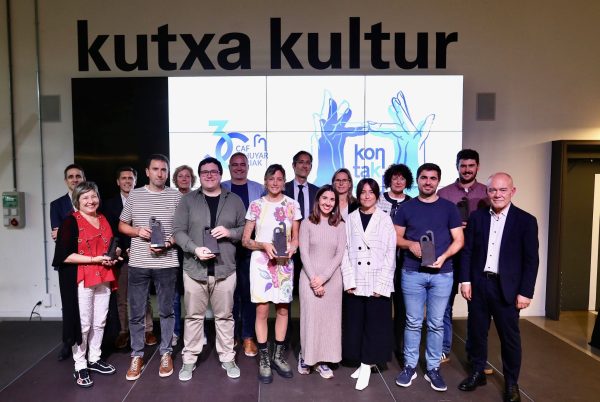Antton Babaze Caf-Elhuyar prize
Asimismo, el Patronato de la Fundación Elhuyar concede el premio CAF-Elhuyar al mérito para «brindar un homenaje a las personas que se han destacado en la normalización del euskara y la divulgación de la ciencia y la tecnología». En esta trigésima edición, este reconocimiento ha sido para Miren Basaras por ser «un referente en la divulgación en euskera, especialmente en el campo de la microbiología».
El Patronato ha querido reconocer su contribución durante la pandemia de Covid-19 para dar a conocer la enfermedad y adoptar medidas preventivas, «siempre de una forma comprensible, sin generar alarma y con una perspectiva social importante». Además, el Patronato ha querido subrayar «el tratamiento preferente otorgado al euskara y a los medios de comunicación en euskara».
Award for merit
The Board of Trustees of the Elhuyar Foundation also awards the CAF-Elhuyar merit award to ‘pay tribute to people who have stood out in the normalisation of the Basque language and the dissemination of science and technology’. In this thirtieth edition, this recognition has gone to Miren Basaras for being ‘a reference in the dissemination of Basque, especially in the field of microbiology’.
The Board of Trustees wished to recognise her contribution during the Covid-19 pandemic to raising awareness of the disease and adopting preventive measures, ‘always in an understandable way, without generating alarm and with an important social perspective’. The Board of Trustees also wished to highlight ‘the preferential treatment given to the Basque language and the media in Basque’.




